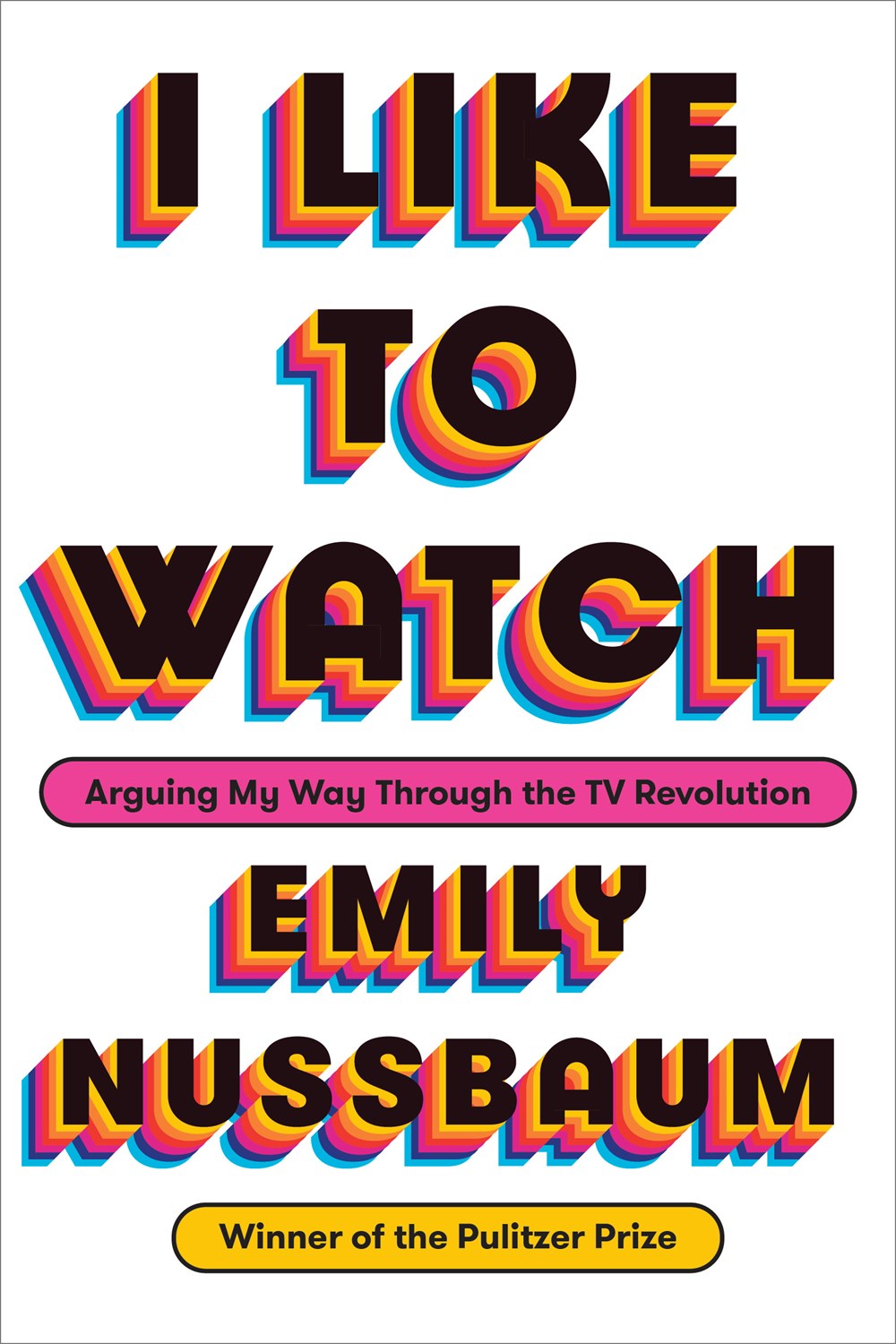Emily Nussbaum’s new book, I Like to Watch, is a collection of criticism that initially appeared in New York Magazine and the New Yorker since the early 2000s. The pieces she’s assembled here dig through big moments in television: the end of “The Sopranos”; the rise of the anthology series (“High Maintenance,” “Easy”); Carrie and Big; “Lost.” And her own big moment: how her obsession with “Buffy the Vampire Slayer” sparked her foray into TV criticism.
Nussbaum talks about television by talking about everything; because television has started to reflect everything. Like history, it’s cyclical. It repeats itself, but often with much bolder content in the same package. Take “black-ish,” at once a radical show that talks openly about police violence, but that also revives the 70s sitcom “Good Times.” This may show how far television has come, but also how little ground many Americans have gained.
The title alone indicates that she doesn’t discriminate based on which TV shows get the best ratings. She writes compelling arguments in favor of under-appreciated shows, like “Jane the Virgin,” which a colleague once told her was a guilty pleasure show.
Perhaps her most admirable content appears in essays like her piece on the #MeToo movement, “Confessions of the Human Shield,” in which she spits the question right out: “What should we do with the art of terrible men?”
Woody Allen was one of her early idols (her “North Star”), and Nussbaum recounts a dream where she baked Allen cookies and was terrified that he wouldn’t think they were really homemade. This anecdote comes up again throughout the piece, perhaps suggesting that this idea of bringing important men cookies, and being insecure about it, pretty much sums up women’s experience trying to make it in most realms of the media, whether TV star or critic.
But, Nussbaum admits that she is in part to blame for boosting up comedians like Louis C.K., when she should have been standing up against them after harassment rumors, or at least hitting them with harder questions when she got the chance. The #MeToo movement is full of contradictions, making the question of bad men’s art all the more complicated.
Another stand out (though all of the essays are entertaining and enlightening) is Nussbaum’s essay about advertising and product placement in television. She seems to think it fascinating how willing even the most respected artists are to agree to advertisers’ demands to keep their shows alive. She says, “If Tina Fey thinks it’s okay, who am I to disagree?”
Nussbaum considers how groundbreaking “30 Rock” was in making product placement just another effective, self-effacing joke. They mock themselves, not caring if the audience knows that they couldn’t keep things running without SoyJoy sponsorship.
“Shows themselves are brands, actors are brands, and so are songs and sodas,” Nussbaum concludes. So, what’s the difference?
She’s hilarious and sincere, and even if you don’t agree with her about a review (as this writer felt about her pan of “The Marvelous Mrs. Maisel”) her collection is simply fun to read.
Die-hard “Lost” fans may not appreciate her piece, “A Disappointed Fan Is Still a Fan,” which she ends talking about the series’ showrunner Damon Lindelof. After the final episode, Lindelof tweeted, “Remember. Let go. Move on.” Nussbaum responds: “Hey Lindelof: done.”
But a “Lost” ultra-fan herself, Nussbaum comes off as more hurt than anything, defending herself as she defends other “Lost” fans who “cared enough to be pissed off” when the show started to fail.
In fact, Nussbaum seems to respect when a show punishes its fans for liking it too much, like “The Sopranos” did; or at least she respects the opportunity to take a step back and send a solid “touché” to the writers.
TV is personal. And, what’s hard for a critic is that most people in America watch it and would die defending their favorite characters. While her pieces are smart, and certainly exude the New Yorker’s cerebral palate, Nussbaum writes for the fans, no matter what type of television is their jam.
“Real fanhood,” she commiserates, “is at its purest level, love.”

NONFICTION
I Like to Watch: Arguing My Way through the TV Revolution
By Emily Nussbaum
Random House
Published June 25, 2019
Meredith Boe is a Pushcart Prize–nominated writer, editor, and poet. Her work has appeared or is forthcoming in Passengers Journal, Newfound, Another Chicago Magazine, Chicago Reader, Mud Season Review, After Hours, and elsewhere, and her chapbook What City won the 2018 Debut Series Chapbook Contest from Paper Nautilus.




“Revolution”? I’ve not owned a TV since the early 1980s.